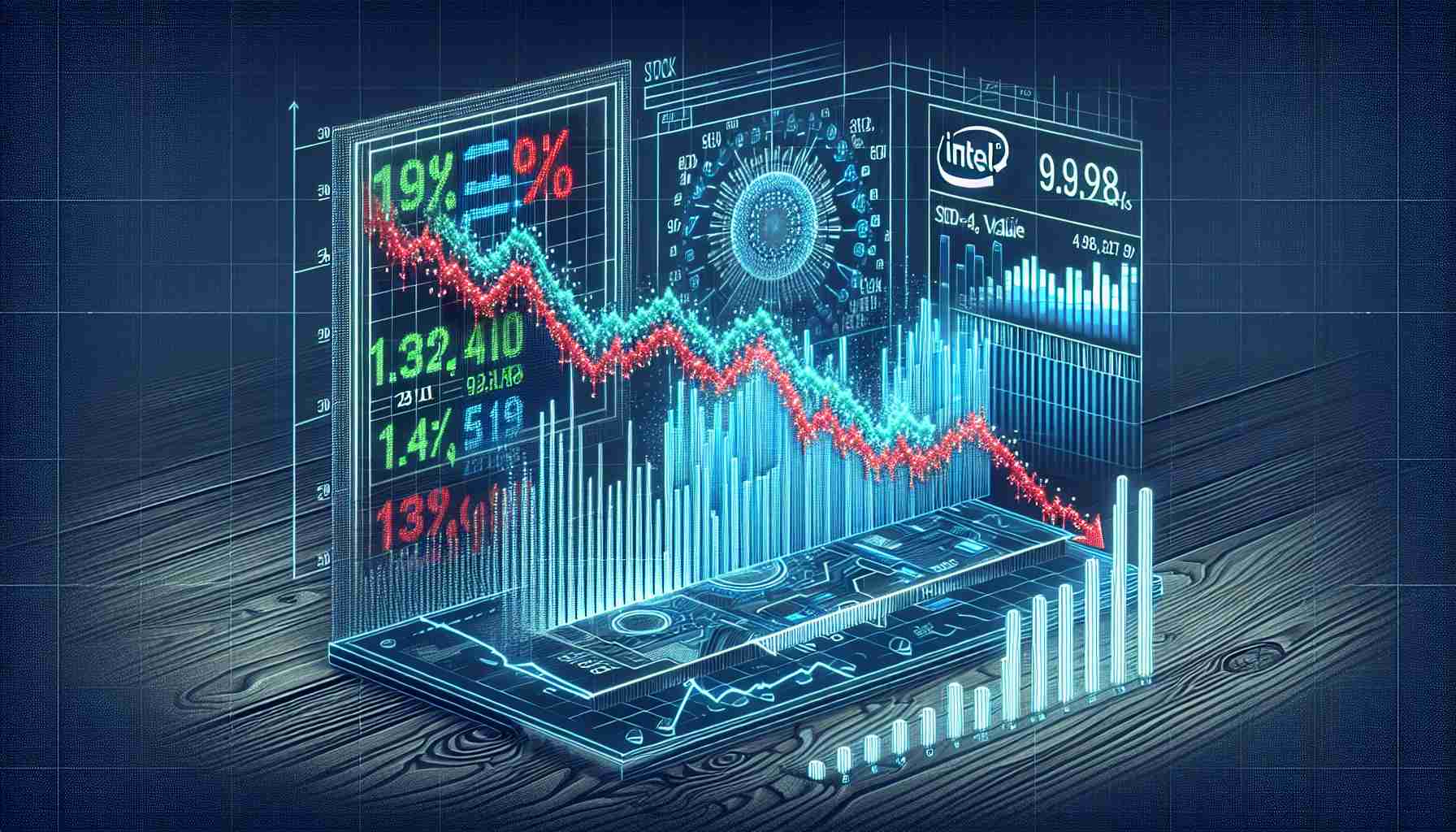Intel has recently experienced a notable stock price decline, with a 7% drop ahead of US market openings on a Friday. This downturn is primarily attributed to the tech giant’s grim sales forecast for the upcoming second quarter. The tech industry is currently pivoting towards artificial intelligence (AI) technologies, moving away from traditional data center spending and personal computer chips.
Despite this setback, Intel is not standing still. It has announced intentions to invest heavily in US manufacturing—planning a $100 billion investment across factories in four states. This decision is part of Intel’s strategy to reclaim its market dominance and adapt to the raging interest in artificial intelligence technologies. The company even introduced a new AI chip earlier in the year, signaling its continued commitment to innovation in the face of Nvidia’s growing competitive stance in the AI processor market.
The shift in industry investment towards more sophisticated and speedy AI server processors has, however, impacted demand for Intel’s CPUs, which were previously the standard for data centers.
In light of these challenges, Intel remains optimistic. They speculate that a new PC upgrade cycle, spurred by Microsoft’s forthcoming Windows OS release, could potentially boost computer sales and subsequently raise demand for Intel’s chips later in the year.
This news comes in contrast to the robust financial outcomes reported by Microsoft and the Google parent company, Alphabet. With Microsoft’s earnings increasing by 20% and Alphabet’s by a staggering 57.21% over the previous year, these tech behemoths continue to perform robustly, largely thanks to their affiliations with AI chip leader Nvidia and their in-house data center processors. This trend underscores the evolving landscape of the technology sector, where innovation and adaptability are key to success.
Intel’s stock price fluctuation is a reflection of the broader market dynamics and investor sentiment within the tech industry. As an industry heavyweight, Intel’s shifts in market valuation hint at more systemic industry transformations. The company’s downturn is not an insular event but a ripple effect from its lag in AI technology adoption—where competitors like Nvidia are taking the lead. Intel’s venture into AI with its own chip earlier in the year demonstrates their understanding of the shifting landscape.
Key questions regarding Intel’s market position involve its ability to recover: Can Intel catch up to its competitors in AI technology? How effective will its manufacturing investment be in reinforcing its market position? Intel’s optimistic outlook about a potential boost in PC sales with a new Windows OS cycle presents a possible turnaround scenario, but it also underscores the company’s dependency on external factors for growth.
The challenges Intel faces are multifaceted. On the one hand, there’s the need to innovate and offer competitive products in the AI space. On the other, there is the requirement to sustain its traditional CPU business amidst declining demand. The controversy lies in whether Intel’s substantial investments in manufacturing will prove strategic in the long term, as the tech industry still grapples with supply chain issues and a shift towards service-oriented architectures.
Considering the advantages and disadvantages, Intel’s investment in manufacturing can be seen as a strong commitment to US tech leadership and jobs—an advantage that may yield long-term gains. However, the disadvantage is the potential for short-term financial strain and the risk of technological obsolescence if their AI offerings do not compete effectively.
For those interested in following the ever-evolving tech industry and stock market dynamics related to companies like Intel, here are some related links for further reference:
– Intel
– Nvidia
– Microsoft
– Google
Please note that the above links direct to the main domains of the respective companies, providing a starting point for additional company-specific information and recent news.

